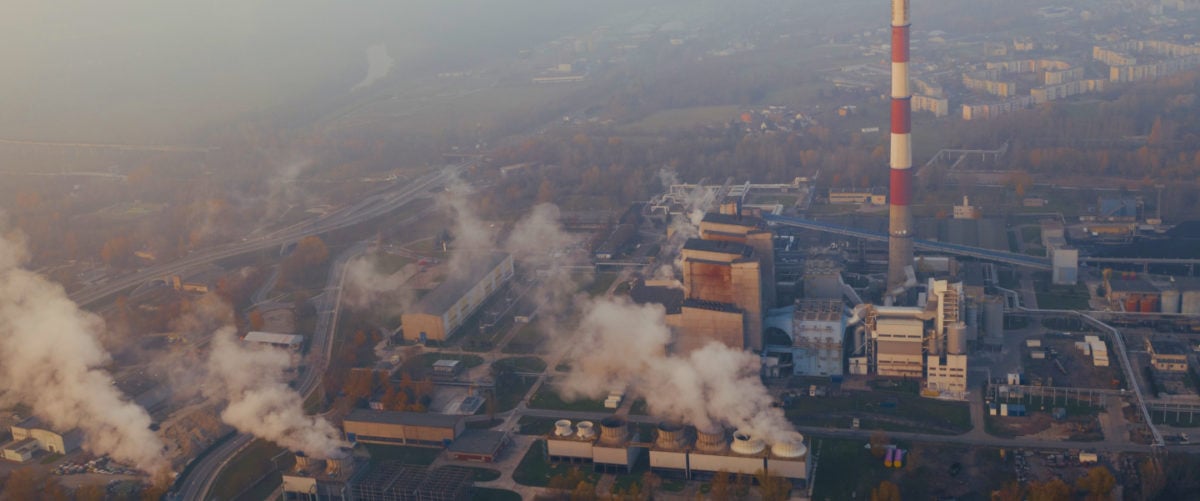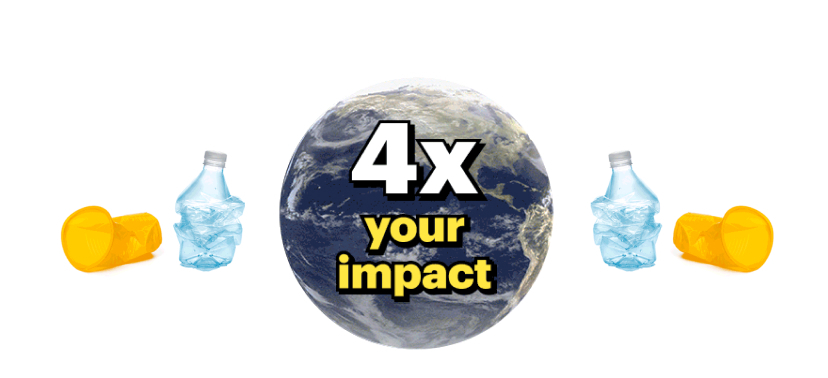Carbon Pricing: 5 Reasons It Won’t Work
Published Apr 24, 2018

Many economists tout the idea that we can price carbon out of existence. Here’s why that won’t work.
Viewers submitted over 100 questions during our recent webinar on carbon pricing, and there were many questions we couldn’t answer in the time allotted. Below, we respond to some of the most common concerns that viewers raised.
1. While 100% renewable electricity is a good goal, isn’t a carbon tax a more comprehensive approach, covering emissions from transportation and electricity generation?
Stopping climate change will require serious action on multiple fronts. That’s why Food & Water Watch, along with hundreds of organizations across the country, is supporting the Off Fossil Fuels for a Better Future Act, or OFF Act for short. This is a comprehensive plan to transition the United States to 100% renewable energy by 2035.
The OFF Act is not just focused on transitioning the energy sector off fossil fuels and mandating an immediate end to new fossil fuel projects. It will also transition our transportation infrastructure, including cars and rail, to 100% renewable energy by 2035.
Furthermore, the bill would also establish the Center for Clean Energy Workforce Development and the Equitable Transition Fund. These measures would ensure a just and equitable transition for workers impacted by the move to clean energy.
Conversely, research has shown that carbon taxes — while popular with economists — are ineffective at actually reducing emissions in the real world. In British Columbia, emissions actually went up after they enacted a carbon tax. And under one proposed carbon tax plan, we would actually see more fracked gas-powered electricity.
That means more fracking, more pipelines, more compressor stations, and more power plants. This kind of fossil fuel development disproportionately burdens low-income communities and communities of color. If we create a carbon policy that continues our reliance on fossil fuels, those burdens will continue, too.
Some carbon tax proponents like to point out that big oil and gas companies now support a tax. But this should be serious cause for concern, not a sign of progress. These corporations know a tax will allow them to continue with business as usual, and pass any costs on to consumers.
2. Making consumers pay for corporate pollution doesn’t sound like a good idea. But wouldn’t a fee and dividend approach, which returns tax revenue to households, correct that problem?
A fee and dividend carbon tax is still a carbon tax, and therefore it has the same problem as any carbon tax: it will fail to reduce carbon emissions.
Nonetheless, some advocates support transferring revenue collected from the tax back to the public. This would make such a program revenue-neutral, which could theoretically appeal to conservatives or Republican lawmakers, while making the tax less regressive.
This, however, would undermine the one area where a carbon tax could have some lasting impact: namely, generating revenue for the development of renewable energy.
Either way, we will not alleviate the problems inherent in dirty energy with a carbon tax. We may even worsen problems by creating a false sense of accomplishment and progress.
Putting faith in a market solution to deliver rapid changes in how we power our world is dangerous. Markets are not, and have never been, moral structures. They do not exist to protect our common resources or to promote equality.
If we are to fight climate change, we must build a clean energy program that puts environmental justice and equality at the center, not embrace a tax as a silver bullet for dealing with inequality and a warming planet.
3. Can’t we enact a carbon pricing program while pursuing emissions reductions at the same time?
In theory, we could enact a carbon tax while systematically reducing emissions. But at a certain point, these policies will conflict with each other. This is because a carbon tax must be recognized for what it is: a tool for turning carbon emissions into a source of government revenue.
An aggressive emissions reduction plan that transitions off fossil fuels would become linked to a revenue stream from the very thing — carbon emissions — that we are seeking to eliminate.
Nobody would accept a tax on lead in people’s water as an acceptable way to slowly work toward eliminating the threat of lead poisoning from water pipes. The correct solution would be to remove this threat as quickly as possible. In the same way, we shouldn’t accept carbon taxes as an acceptable way to eliminate greenhouse gas pollution.
If our goal is to raise revenue to help fund investment in renewable energy, while lessening burdens on low-income people during this transition, then let’s do so in a way that doesn’t create systemic dependence on the very thing we are trying to eliminate. For starters, we can cut fossil fuel subsidies, close corporate tax loopholes, and create more progressive income tax policies.
4. A recent carbon tax proposal in Washington state seeks to address critiques by labor, environmental, and environmental justice communities. Does Food & Water Watch support this effort?
While it’s encouraging that carbon tax supporters in the state have listened to criticism of their earlier proposal, it remains a fundamentally flawed approach to carbon regulation.
The current version of the tax relies on the same misguided premise that we see in the failed British Columbia carbon tax: the idea that some nominal increases in the prices of carbon-based fuels would drive consumers to reduce their consumption.
The problem is that the vast majority of consumers do not have an option to stop heating their homes or driving to work or to school each morning. In that case, emissions don’t fall, but prices still rise.
Instead of a fee and dividend model, the new Washington plan includes only a small carve-out allotting resources to develop renewable energy projects in low-income communities.
The current proposal also allows utilities to collect the tax revenue that customers pay and use that revenue to reduce carbon emissions. While this seems like a reasonable approach to encourage investment in clean energy technologies, this investment will go towards emissions reductions, instead of eliminating them entirely.
This plan envisions a world where emissions are never eliminated, since doing so would eliminate an income stream for the utilities (see question three above).
Moreover, it exempts from carbon taxes any coal plant set to shut down by 2025. Subjecting gas plants to a tax, while exempting coal, could actually boost the use of coal.
5. While direct emission reductions and a transition to 100% renewable energy are preferable policies, a carbon tax is more politically viable. Shouldn’t we try to pass carbon pricing while we can?
There is no reason to believe that this political analysis is correct. The failure of carbon tax state bills and a ballot initiative in Washington are instructive.
Beyond that, we should not support weak policies just because someone believes they stand a better chance of passing. When Food & Water Watch was the first national organization to call for a ban on fracking, we were called politically naive and unrealistic.
Like the call for 100% renewable electricity, the call for a ban on fracking was based on the world we need, not the way the political winds were blowing.
Since then, as a movement, we’ve accomplished so much. We have passed fracking bans in Vermont, New York, and Maryland. We’ve introduced legislation in Congress to ban fracking in the United States. We even had a major party presidential candidate support a fracking ban.
The movement for 100% renewable energy is similarly gaining momentum. Over 30 members of Congress have supported the OFF Act, and over 100 people running for Congress have committed to sponsoring the legislation if elected in November.
State legislatures in at least six states (Maryland, Colorado, New York, Virginia, Massachusetts, and New Jersey) have bills to transition to 100% renewable electricity. Dozens of municipalities have made 100% renewable commitments.
And there’s strong evidence that the public wants to see bold action. Gallup polling shows much stronger support for renewable energy and strict emission controls than for a carbon tax among Republicans, Democrats, and Independents.
Ready to support bold climate action? We know we are.
Tell the Biden Administration that our future MUST be fracking-free. Our existence depends on it.

Time to face it —~it’s people or plastics.~We can’t have both.
Become a plastic pollution fighter this Earth~ Day and have your gift MATCHED $3-to-$1!
Enjoyed this article?
Sign up for updates.
TO TOP


